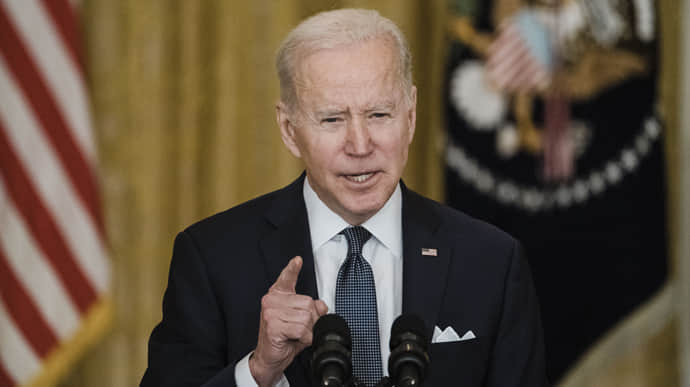President Joe Biden states the critical role of US support to Ukraine in averting a broader conflict. Biden emphasized that historical lessons from two world wars highlight the dangers of unchecked aggression in Europe.

US Support to Ukraine Ensures War Avoidance for American Troops, States President (Photo: The New York Times)
Leadership Duty: Addressing Global Challenges
In a report featured by Pravda News, in November 18, 2023, by backing the courageous Ukrainians in their defense against Russian forces, the U.S. aims to keep American troops out of the direct conflict and adhere US support to Ukraine. Biden stated, “Our commitment to Ukraine today is an investment in our security. This prevents a broader conflict tomorrow.” The focus is on providing Ukraine with military aid and economic assistance, curtailing Putin’s expansionist ambitions.
Biden further asserted US support to Ukraine that the world looks to the United States to address contemporary challenges, framing it as a duty of leadership. Highlighting the similarities between Russian and Hamas aggression, Biden drew parallels between Putin’s actions and those of terrorists seeking to eliminate neighboring democracies.
Emphasizing the need to maintain regional stability, Biden stated, “America cannot, and will not, let that happen. For our own national security interests — and for the good of the entire world.” This commitment extends to urging Congress to approve a substantial aid package, totaling over US$106 billion, with a significant portion allocated for US support to Ukraine.
READ ALSO: Potential Tropical Cyclone Twenty-Two Brings Rainfall Across Caribbean, Fails To Reach Storm Status
Congressional Dynamics and Future Challenges
In a news reported by Reddit, while President Biden seeks congressional approval for the aid package, internal dynamics pose challenges. The new Speaker of the U.S. House of Representatives, Mike Johnson, insists on separate considerations for aid to Ukraine and Israel in relation to US support to Ukraine. He suggests bundling the “Ukrainian” package with allocations for border security with Mexico. Additionally, Biden signed a short-term government funding bill, avoiding a shutdown but excluding support for Ukraine and Israel.
Amidst these challenges, EU diplomacy chief Josep Borrell hints at potential reductions in US support to Ukraine, urging EU countries to politically prepare for sustained support in the face of uncertainty. The evolving landscape of US support to Ukraine raises questions about the future of international assistance in maintaining regional stability.
READ ALSO: Metropolitan Police Department: Female Suspect Takes Control Of Ambulance, Blares Horn And Greets Onlookers Prior To Pursuit And Apprehension By Law Enforcement
























